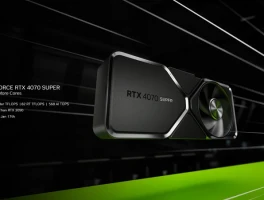Generated Title: Microsoft's AI Chip Deal: A $15 Billion Fig Leaf?
Microsoft's announcement that it's shipping 60,000 Nvidia AI chips to the UAE as part of a $15.2 billion investment raises a few eyebrows, especially given the current geopolitical climate. The official line is that this is all above board, with licenses approved by the U.S. Commerce Department under "stringent" safeguards. But let's dig into the numbers, shall we?
The UAE's pledge to invest $1.4 trillion in U.S. energy and AI-related projects is certainly eye-catching. That's an outsized sum, considering their annual GDP is only roughly $540 billion. It’s like promising to buy a fleet of aircraft carriers when your annual income barely covers a dinghy. Is this a genuine commitment, or is it more of a quid pro quo to get their hands on these coveted AI chips? The UAE ambassador called it a "Gold Standard" for securing AI access. I'd call it a leveraged buyout with national security implications.
The OpenAI Connection
Then there's the OpenAI angle. Microsoft says these GPUs are being used to provide access to advanced AI models from OpenAI, Anthropic, and others. OpenAI, meanwhile, just signed a $38 billion deal with Amazon to use their infrastructure (and, crucially, their Nvidia chips). Last week, Sam Altman casually mentioned his company has committed to spending $1.4 trillion on AI infrastructure. To be clear, that's trillion with a "T." OpenAI's annual revenue is reportedly around $13 billion. (Altman claims it's "well more," but declined to specify.) That's a revenue-to-infrastructure commitment ratio that would make even the most reckless dot-com CEO blush.

I've looked at hundreds of these filings, and the scale of these infrastructure commitments are unusual. Where's all this money coming from? Morgan Stanley estimates global spending on data centers will reach nearly $3 trillion by 2028. Half of that, they say, will be covered by big tech; the rest by sources like the private credit market. That's code for "shadow banking," which is code for "we don't really know."
Burry's Bearish Bets
Speaking of not knowing, "Big Short" investor Michael Burry (he of housing market crash fame) is betting against both Nvidia and Palantir. His hedge fund, Scion Asset Management, disclosed a $186.6 million put option on Nvidia and a whopping $912 million put on Palantir for the quarter ending September 30. (A put option, for those unfamiliar, profits when the share price falls.) Burry's rationale is simple: AI euphoria has pushed stock valuations into bubble territory. Nvidia’s stock has jumped 54% this year alone, extending a three-year surge. Palantir has skyrocketed 174%. Are these gains sustainable, or are they built on hype and wishful thinking? 'Big Short' Michael Burry bet against Palantir and Nvidia
This is the part of the report that I find genuinely puzzling. If the UAE is truly committed to a $1.4 trillion investment in U.S. projects, why the need to secure Nvidia chips through Microsoft? Why not simply invest directly in Nvidia or other U.S.-based AI infrastructure companies? The answer, I suspect, lies in the control and access these chips provide. It's not just about computing power; it's about owning the means of AI production.
Smoke and Mirrors?
So, what's the real story here? Is Microsoft's $15.2 billion investment a genuine effort to foster AI development in the UAE, or is it a cleverly disguised backdoor for accessing advanced technology under the guise of economic partnership? The numbers, as always, tell a story. And this story, in my analysis, suggests that the $15.2 billion figure may be more of a fig leaf than a foundation.

